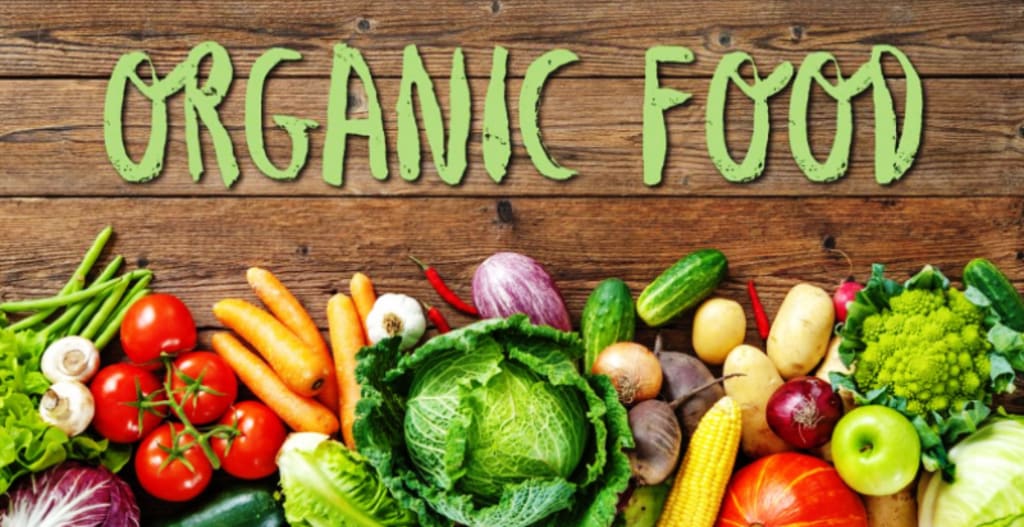Is Organic Food Better than the Regular Food?
Organic Food

Introduction
Today, organic foods are more popular than they ever were. In fact, nearly three out of four grocery stores now sell organic foods.
In this article, we will provide a breakdown of what organic really means, the advantages of consuming organic food and if it really is a healthier alternative to non-organic foods.
So, what is Organic Food?
The word organic is used to describe food products bred or grown using organic farming methods. Organic farming aims to encourage sustainable farming, reduce pollution, promote animal welfare, and offer safe and healthy foods for consumption.
In order for vegetables to be certified as organic, the following conditions need to be met:
• The crops need to be grown without the use of pesticides or synthetic fertilizers.
• The soil in which the crops are grown should not have been treated with synthetic fertilizers or pesticides for a minimum of three years before harvest.
• The crops should not be modified genetically in any manner.
For meat products to be considered as 100% percent organic, the following requirements need to be met:
• The animals need to be free and uncaged, which means that they should be able to graze naturally without restrictions for at least 120 days out of the grazing season.
• The animals need to be bred without utilizing hormones and antibiotics.
• The animals should only be fed organic food.
The Benefits of Online Organic Food
Based on a report from the European Parliament in the year 2016, the methods and techniques used in organic farming prevent diseases in humans and improves the health of animals.
Specific benefits of organic foods that are backed scientifically are:
• Organic food includes more antioxidants
Organic crops comprise higher concentrations of antioxidants as compared to non-organic crops. Antioxidants aid in reducing the danger of developing conditions such as heart diseases and specific cancers. Following is a list of antioxidants present in higher amounts in organic crops:
o Flavanones: 69% higher concentration
o Phenolic acids: 19% higher concentration
o Flavonols: 50% higher concentration
o Flavones: 26% higher concentration
o Anthocyanins: 51% higher concentration
o Stilbenes: 28% higher concentration
• Organic food comprises healthier fats
“The meat of free-range animals has healthier fats, such as omega 3 fatty acids," states Michael Dann, MD, a gastroenterologist, associated with NY Presbyterian/Weill Cornell Medical Center. Thus, organic meat, eggs, and dairy are definitely healthier than their non-organic counterparts. Research shows that organic milk contains around 50% more omega 3 fatty acids than regular, non-organic milk.
• Organic food does not include synthetic pesticides
Organic food is completely free of synthetic fertilizers and pesticides that are harmful to our health. For example, a 2014 research reviewed the effects that exposure to pesticides had on pregnant women. Researchers found that almost a third of the women who lived nearby farms where synthetic fertilizers and pesticides were used developed an increased risk of delivering a child with developmental disorders such as autism.
Organic foods are not completely free of pesticides; however, synthetic pesticides are not used in organic foods. Synthetic pesticides are more toxic and may remain on foods for longer, making organic pesticides safer. This is why it is extremely important to wash the fruits and vegetables to ensure no fertilizer or pesticide residues are left on them.
Overall, the 2014 review on antioxidants found proof that organic foods comprise lower degrees of fertilizer and pesticide residues and lower concentrations of toxic metals than non-organic foods.
What Organic Foods should you Purchase?
Choosing organic foods is most certainly a better option than selecting non-organic products. However, as organic food products can be expensive, one needs to be selective when making purchases. Here is a list of organic food products that you should purchase, as these products are used on a daily basis in all Indian households:
• Dairy and Milk
• Fresh Vegetables
• Ghee and Oils
• Tea and Coffee
• Spices
• Flours and Powders
These products can be purchased directly from farmers through virtual platforms such as SIRA Organics, the First Direct to Consumer Farmers Marketplace for Organic and Natural Farm products.






Comments
There are no comments for this story
Be the first to respond and start the conversation.